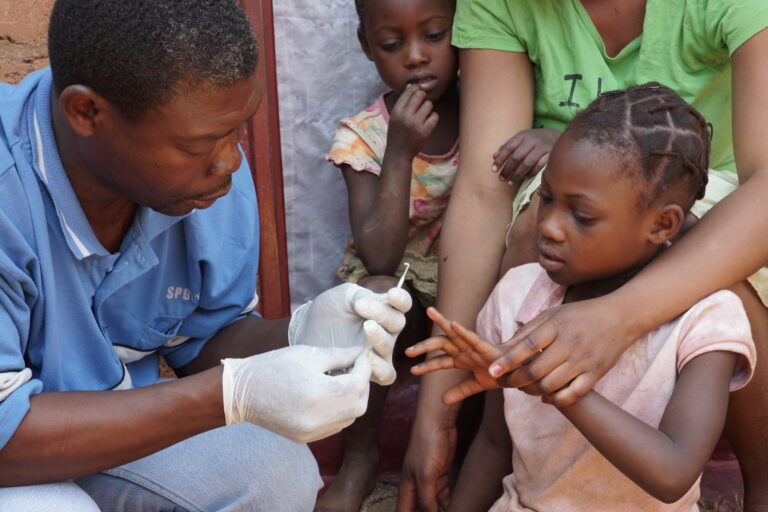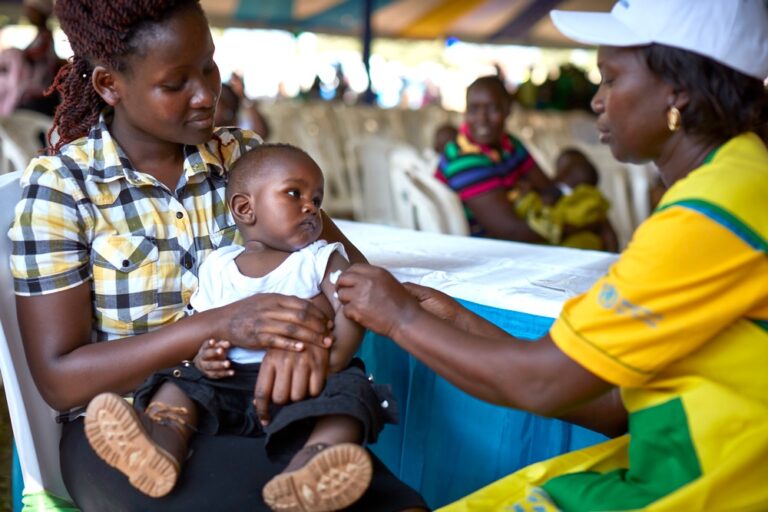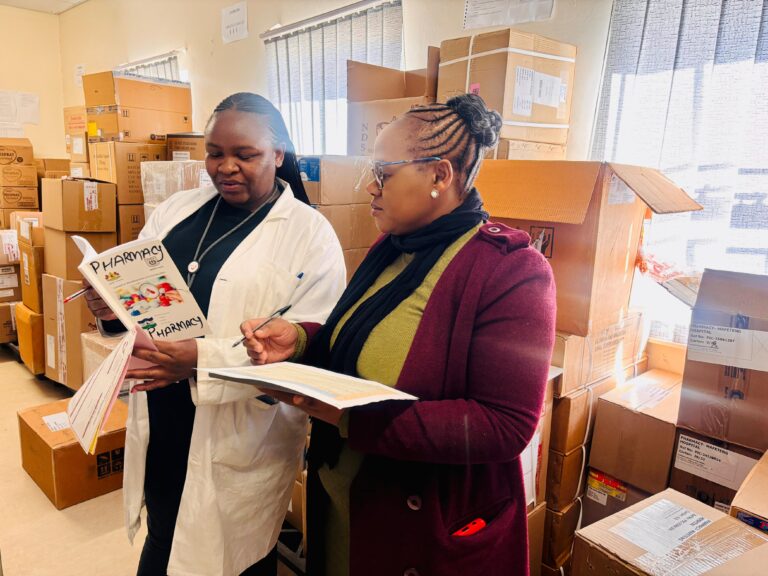In an effort to enhance vaccine safety and bolster public confidence in immunization in Malawi, the Ministry of Health (MOH) in collaboration with the Saving Lives and livelihoods (SLL) Phase II program, that is led by the Africa Centres for Disease Control and Prevention (Africa CDC), with support from the Mastercard Foundation conducted training activities for healthcare workers in Adverse Events Following Immunization (AEFI) surveillance. As part of this initiative, 796 frontline healthcare workers were trained across three critical districts for the national immunization program: Mzimba North, Lilongwe, and Blantyre. Akros Research, the lead implementing partner for pharmacovigilance and safety surveillance in Eastern and Southern Africa, is supporting these efforts.
The SLL support kicked off with a Trainer of Trainers session in February, equipping fifteen district-level facilitators with the tools and knowledge to lead local cluster training activities. These facilitators then trained a diverse group of healthcare workers, including clinicians, nurses, pharmacy personnel, cold chain technicians, and health surveillance assistants, most of whom operate at the community and facility levels.
This SLL support focused on building local capacity in Adverse Events Following Immunization (AEFI) surveillance across the three critical districts: Mzimba North, Lilongwe, and Blantyre.
Key Highlights include;
- 796 frontline health workers trained.Lilongwe contributed 310 health workers, Blantyre 245 and Mzimba 241 health workers
These included clinicians, nurses, pharmacy staff, cold chain technicians, and health surveillance assistants, with a majority serving at the community and health facility levels, where immunization delivery is most impactful. - VigiMobile App introduced nationally.
Participants were trained in using VigiMobile, a mobile-based reporting system that enables real-time AEFI data capture. This replaces slower, paper-based forms and supports faster national-level action. - Sustainable Capacity built at the District Level
A Trainer of Trainers model was used to retain technical knowledge within each district, ensuring local ownership and sustainability beyond the life of the Programme.
Why This Matters
- Enhanced Vaccine Safety: Real-time reporting ensures quicker response to adverse events and fosters community trust in vaccines.
- Data-Driven Decision-Making: Timely, digital AEFI data supports better regulatory oversight and informs national immunization strategies.
- Community Confidence: Emphasizing transparent reporting reassures the public, boosting vaccine uptake and protecting population health.
During the training activities, participants shared critical insights:
- Many assumed only serious AEFIs should be reported. Trainers emphasized that all AEFIs must be documented.
- Concerns about blame in reporting were addressed, reporting is anonymous and not punitive.
- Some lacked smartphones or data access. Trainers clarified that VigiMobile works on standard mobile data, just like other mobile applications.
To ensure continued success, the MOH has laid out clear next steps;
- AEFI reporting books will be distributed to all districts.
- District AEFI Investigation Teams will be strengthened.
- There will be ongoing monitoring and support for real-time investigations
- The need to encourage management ownership to embed these practices in district health operations
The SLL Phase II Program is more than a training, it’s a strategic investment in Malawi’s healthcare future. By integrating digital tools with district-led training and community-level engagement, Malawi has created a replicable model for other countries facing similar challenges.
With continued support and policy alignment, Malawi is on track to not only improve vaccine safety, but to build a resilient health system that puts its people first.
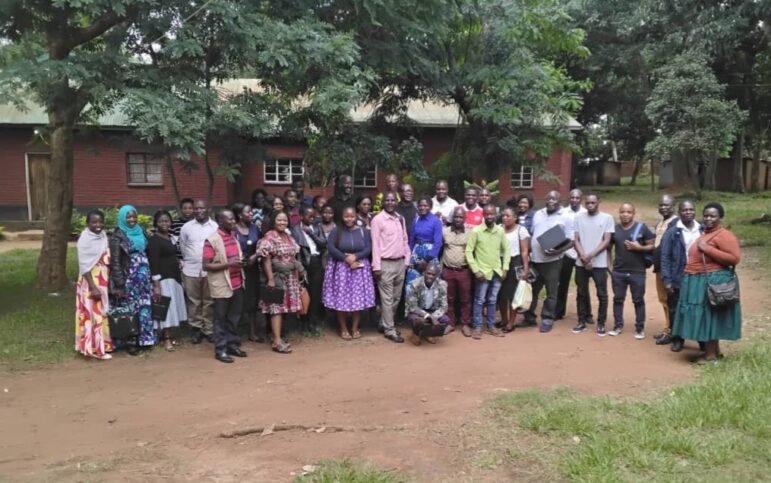
Participants of one of the cluster training activities for Lilongwe district at KALOLO TDC, Lilongwe, Malawi, in March 2025.
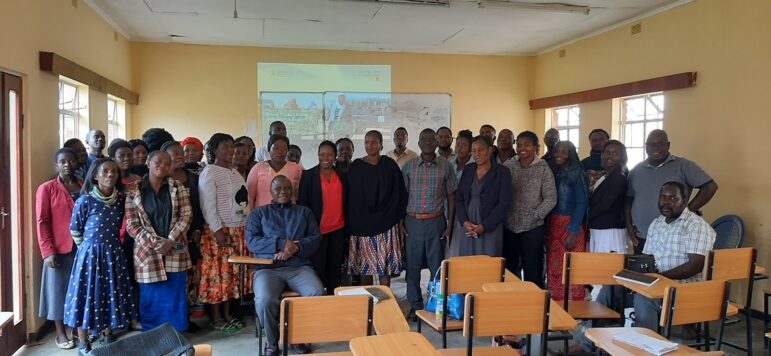
Participants at one of the cluster training activities for Mzimba district held at St Johns, Mzimba North, Malawi in March 2025
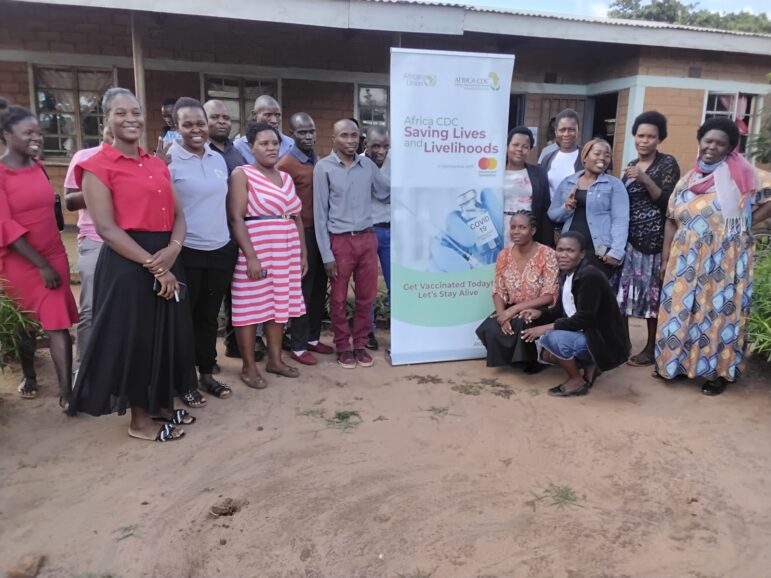
A group of participants at one of the cluster training activities for Blantyre district held at Chigumukire, Blantyre, Malawi.

